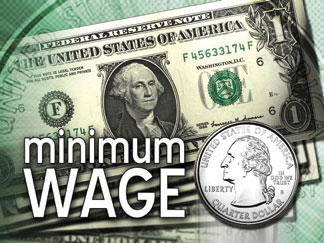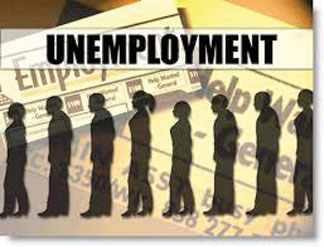
 Black workers would benefit from minimum wage hike
Black workers would benefit from minimum wage hike
By Freddie Allen
WASHINGTON, D.C. (NNPA) – Increasing the minimum wage would disproportionately benefit Black workers and push the country closer to racial and economic equality, according to a recent report by the Economic Policy Institute, a non-profit think tank, focused on economic policies that affect low- and middle-income workers.
The report titled, “To Work with Dignity: The Unfinished March Toward a Decent Minimum Wage,” is part of series published by EPI that examines the often forgotten economic objectives of the 1963 March On Washington for Jobs and Freedom.
According to the report, “The demand for a higher minimum wage was part of a package of demands seeking economic justice for workers through government intervention in the labor market.” The report continued: “Due to discrimination in the labor market and the educational system, Blacks were heavily concentrated in many of the lowest-paid occupations.”
“The shift from farm work to industrial manufacturing work in urban areas lead to a sharp increase in wages for Black men and Black women from 1939-1959,” according to the report.
Wages for Black men rose 148.9 percent and wages for Black women increased by and 130.1 percent between 1939 and 1959. Despite those gains, however, more than half of Blacks still lived in poverty. Black men earned 52.8 percent of what white men earned; Black women earned 60.5 percent of what white women earned, stated the report.
In 1963, March organizers believed that increasing the minimum wage, “had the potential to lift a large share of the Black population out of poverty.”
In today’s dollars, the 1968 minimum wage would be worth $9.44, more than $2 higher than the current minimum wage of $7.25, according to the report.
The EPI report showed that, although Blacks account for 12 percent of the work-force, 14.1 percent of workers affected by an increase in the minimum wage would be Black. More than half of all workers who would benefit from an increase in the minimum wage would be white.
When it comes to minimum wage, the United States, one of the wealthiest nations in the world falls woefully behind its partners in the Organization for Economic Co-operation and Development, an international group that promotes economic and social well-being. Collectively, in OECD member countries, the minimum wage is half the country’s median wage. That group includes Australia, Turkey, Canada, France and 30 other countries.
Currently, the minimum wage in the United States is 37 percent of the median wage.
According to the report, weak labor laws, the struggling economy, and falling influence of labor unions contributed to income disparities in the low-wage job market.
Earlier this year, Democratic lawmakers proposed, the Fair Minimum Wage Act of 2013, a bill that would raise the federal minimum wage to $10.10 in small steps. The increase would bring the minimum wage to a little more than half of the median wage in the United States. The bill faces an uphill battle in today’s partisan political climate.
According to the EPI report, economic output has more than tripled since 1963 and “productivity is up about 130 percent, yet so many workers still struggle.”
As production increased by 80 percent from 1973 to 2011, “typical production/nonsupervisory worker increased by less than 11 percent.”
EPI also dispelled the misconception, often promoted by restaurant groups, that mini-mum-wage workers are mostly teenagers, high school dropouts and various underachievers.
According to EPI, “roughly 80 percent are at least 20 years old and 78 percent work at least 20 hours per week.”
The Center for Economic and Policy Research, a research group that promotes democratic debate on economic and social issues, found that 40 percent of fast food workers are 25 and older and “half of fast-food workers are 23 or older.”





Be the first to comment